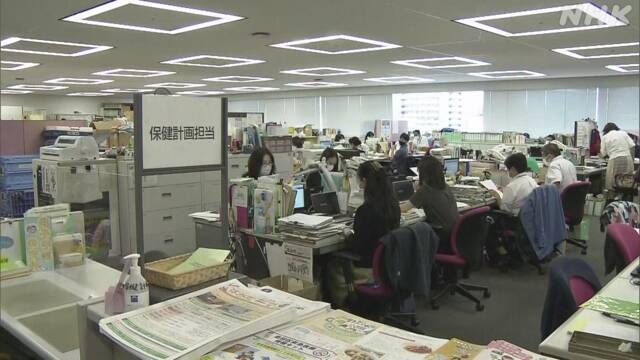As the infection of the new coronavirus continues to spread rapidly, we are increasing the number of beds dedicated to the new coronavirus in Sumida Ward, Tokyo, but it is becoming increasingly difficult to adjust hospitalization, and the sense of crisis is increasing. ..
In Tokyo, the spread of the new coronavirus has not stopped, and the number of people who need medical treatment is increasing weekly at a pace of 1.2 to 1.7 times this month, and the number of newly infected people per day is increasing. Is the highest ever every day.
In Sumida Ward, the number of people in need of medical treatment increased 4.7 times compared to the beginning of last month, and this month we increased the number of dedicated beds by 1.3 times to 237 beds, but 40% of the beds are already in use.
In particular, there are not enough beds for patients who need oxygen inhalation even in moderate illness, and it is becoming increasingly difficult to adjust hospitalization.
For this reason, we have secured a new device that can inhale oxygen at home, and we are strengthening support for home caregivers, such as increasing the number of pulse oximeters to 900, which is three times the number up to the 4th wave. There is a growing sense of crisis that the rapid expansion of
Sumida Ward Health Center Director Toru Nishizuka said, "There are an increasing number of cases where the condition suddenly deteriorates during medical treatment at home and breathing becomes difficult, but there is not always a bed that can be put in immediately when there is a sudden change. I have a concern that if I don't go, I will not be able to save my life. "
“Private emergency” more than double last month
Amid the rapid spread of coronavirus infection, private companies responsible for transporting patients to hospitals have received a series of requests from public health centers, etc., and this month the number has reached 180, more than double that of last month. It is increasing rapidly.
Patient characteristics have also changed, and many are in the younger generation without underlying illness.
The "Private Emergency Feel" in Hino City, Tokyo, is in charge of transporting patients who have been receiving medical treatment at home but whose condition has deteriorated to a hospital at the request of a public health center or local government.
By the 22nd of this month, the number of patients transported had reached 184, more than double the 77 cases last month.
In some cases, it takes more than an hour to transport the product because the recipient cannot be found near the home.
In addition, the characteristics of patients also changed, and in the 3rd and 4th waves, elderly people with underlying diseases accounted for 70% of the total, but this month, transportation under 40s accounted for about 70%. And most of them are patients without underlying illness.
On the 27th, when I was accompanied by an interview, I was heading to the patient wearing protective clothing to prevent infection while the temperature was high.
On that day, the man in his 40s was being treated at home, but for several days his fever did not go down, and the oxygen level in his blood deteriorated, so he was hospitalized.
The vaccination has not been completed and the route of infection is unknown.
Satoru Yashima, who was in charge of transporting patients, said, "I feel that the infection is spreading in the city because I sometimes carry patients around in the same area. Until now, young people were often asymptomatic. However, many young people today have chest pains and breathlessness. Most of the mutant strains are severely or moderately ill, and it seems difficult to sit down. "

